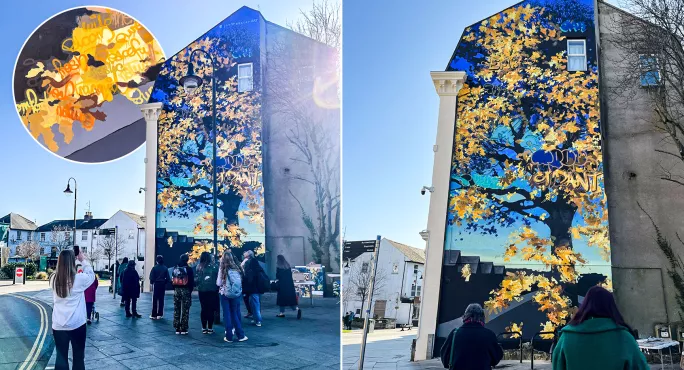The landscape of art education is evolving, balancing the need to keep the arts relevant while addressing pressures from core subjects.
I’m fortunate to work for a trust that values the arts, but protecting arts education is becoming more urgent. The Department for Education’s curriculum and assessment review interim report notes that while foundational subjects like maths and science remain pivotal, some arts subjects have declined.
It highlights challenges in time allocation, student participation and resource access. The call for better specialist teachers, improved equipment and more extracurricular activities is growing louder.
Arts education: creativity is crucial
Fortunately, the DfE recognises that creativity and critical thinking are crucial for future careers, and the development of new level 2 courses for 16- to 19-year-olds aims to support vulnerable students and bridge gaps in post-16 education.
The National Society for Education in Art and Design has responded to the interim report, emphasising the role of the arts in filling educational gaps and boosting employability.
In schools, maintaining a strong arts curriculum while addressing foundational knowledge gaps is challenging. Maths and English often take precedence, leaving arts subjects struggling for time and resources. Arts educators must be adaptable and forward thinking to navigate these challenges.
Bruce Lee said, “be like water” - a sentiment that applies to art leads who must manoeuvre through rigid school structures. They must be resourceful, moving around obstacles and seizing opportunities to sustain arts education.
At Coombeshead Academy, we partnered with a local artist to create a five-storey mural in the town centre. Collaborations like these, along with securing external funding, help sustain valuable art experiences.
Another pressing conversation in art education is around the impact of artificial intelligence. While some resist AI in the art world - including many students concerned about its environmental impact - AI is becoming a significant force in creative industries.
Art educators must prepare students to navigate AI’s pitfalls while ensuring human creativity remains authentic. Striking a balance between embracing technology and preserving foundational artistic skills will be key.
Art education must evolve without abandoning tradition. The digital age introduces new mediums, but practices like drawing, painting, printmaking and darkroom photography remain valuable.
It’s vital to celebrate great art everywhere, not just in urban centres but in rural and coastal communities where artistic expression thrives in unique ways.
Focusing on employment outcomes is crucial for arts education’s future. Art educators must demonstrate that creative skills lead to viable careers, showing students and parents that a creative path can be fulfilling and financially sustainable. Making the case that creative industries are essential both culturally and economically will help secure future investment in the arts.
Sam Eyre is curriculum and team area lead for the creative arts at Coombeshead Academy, part of Education South West





